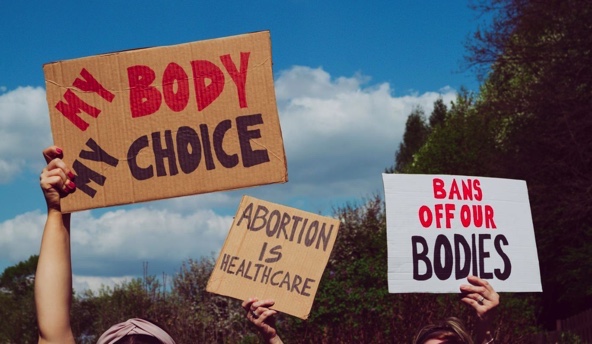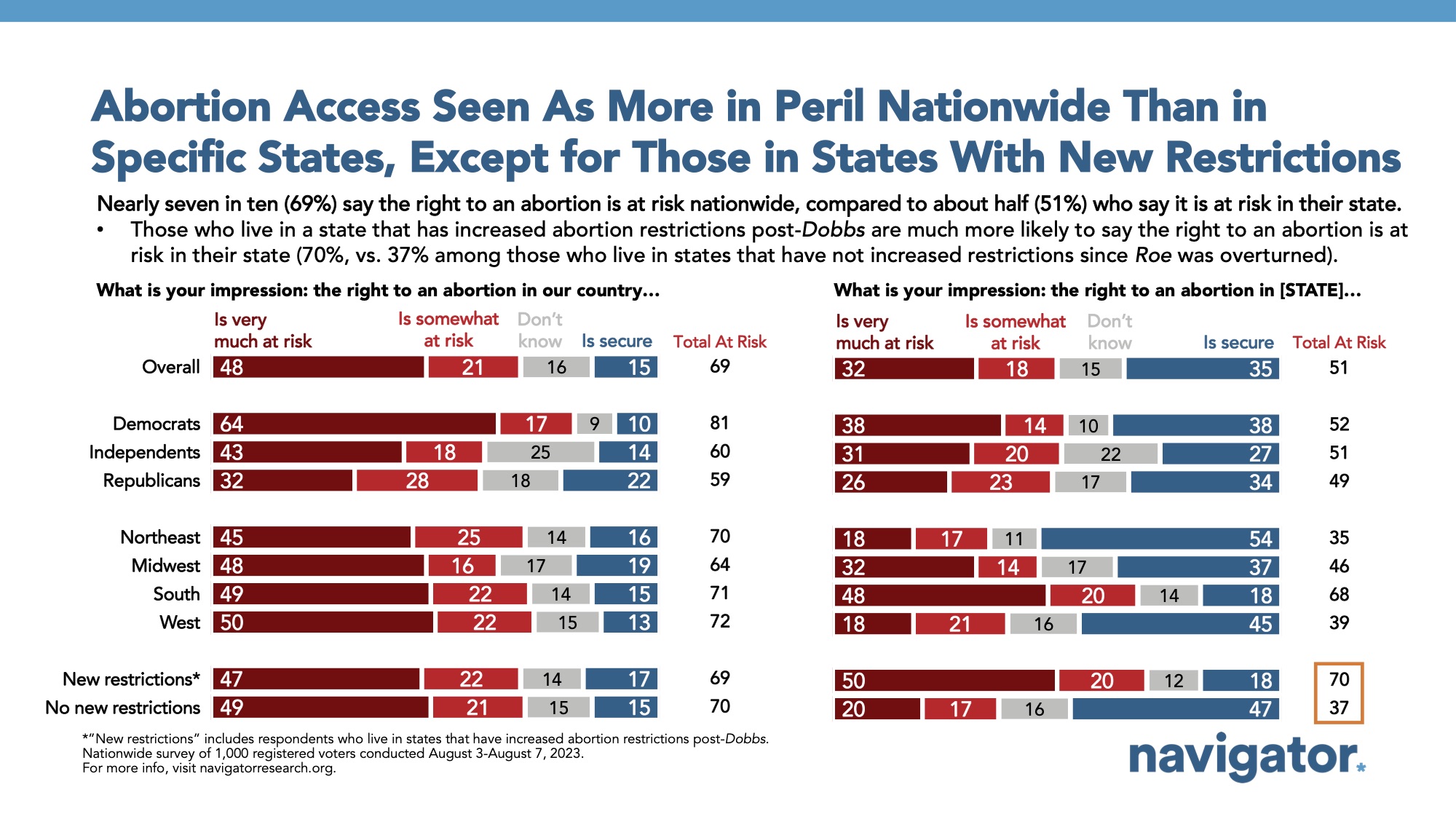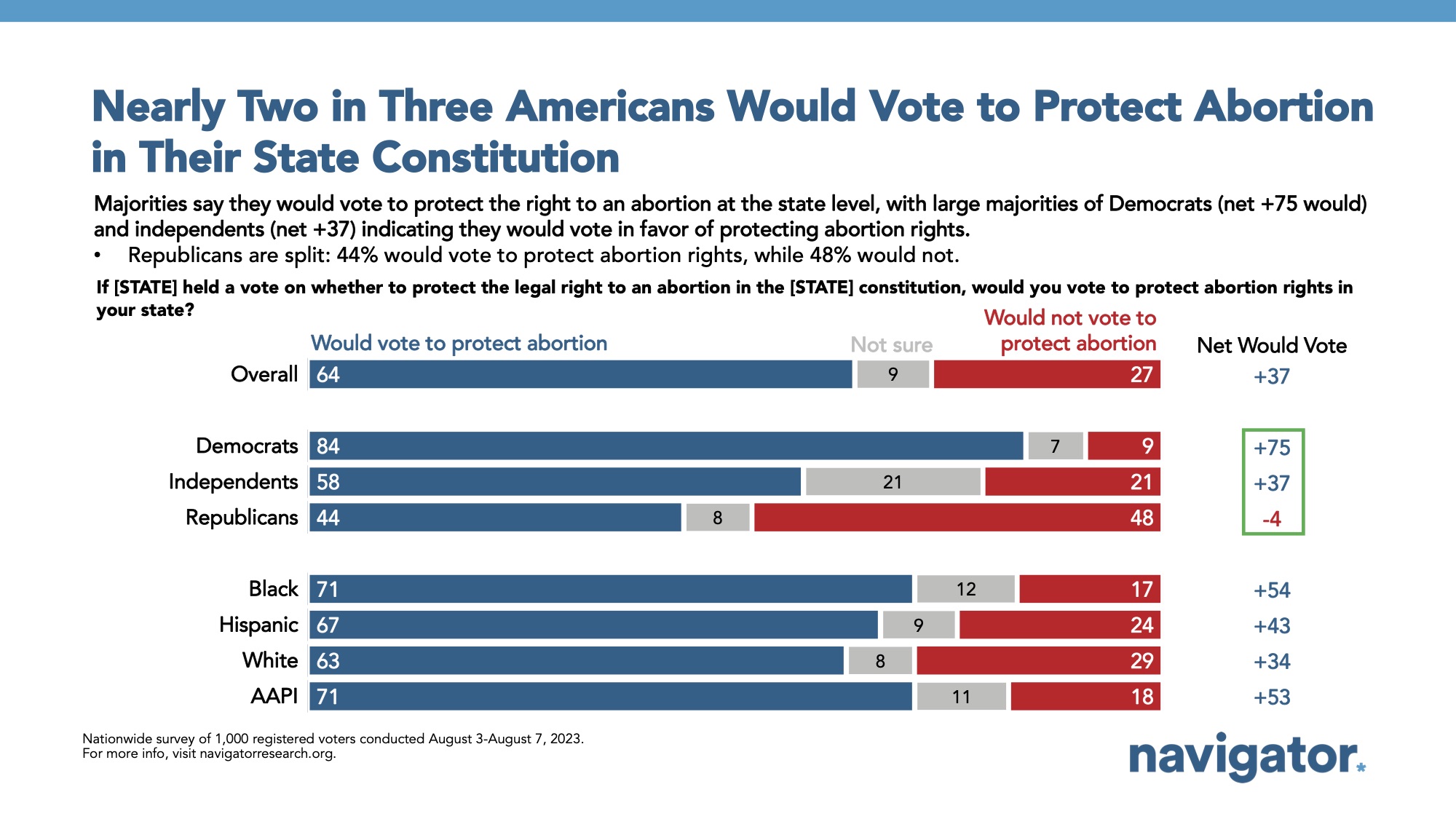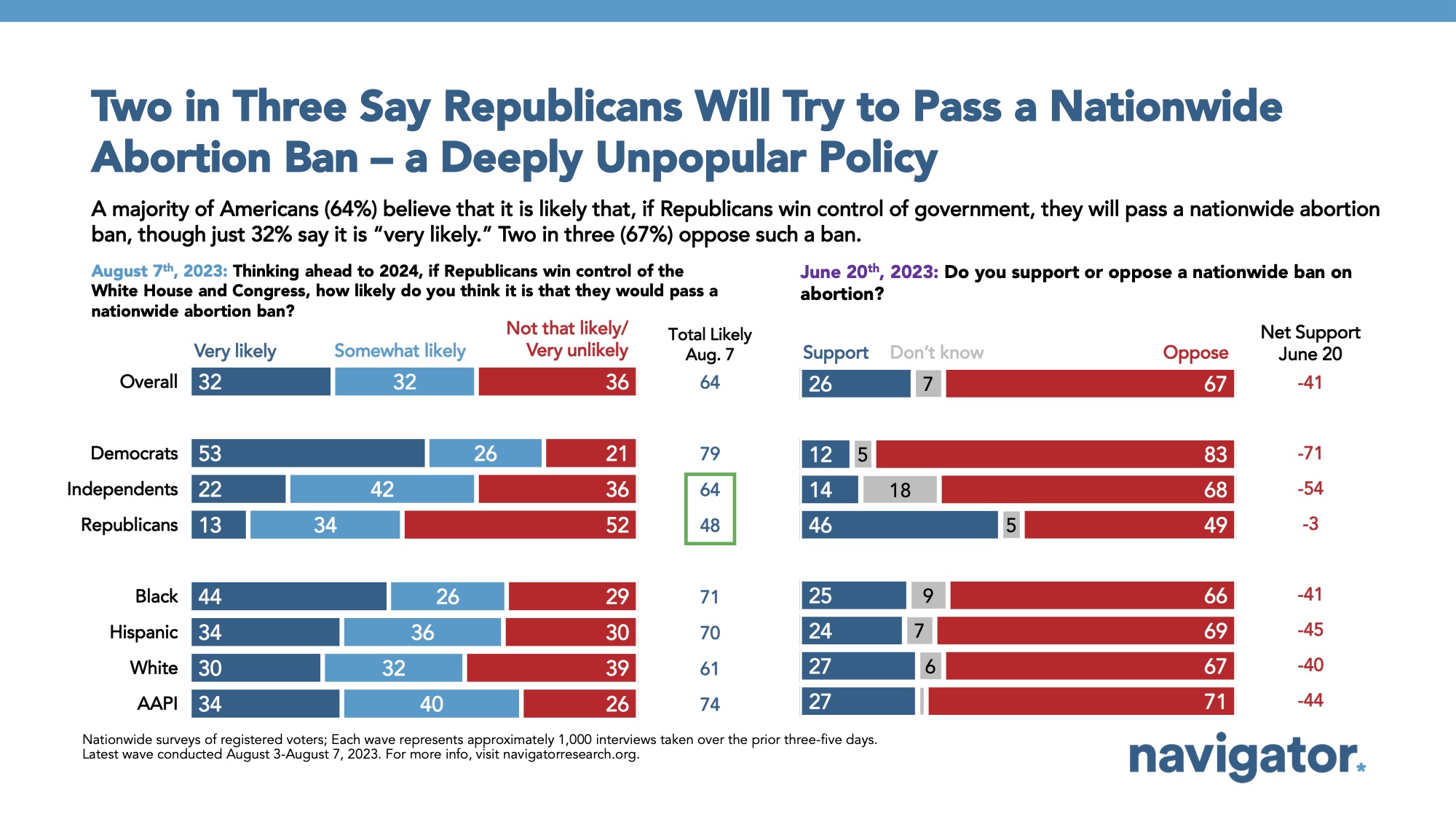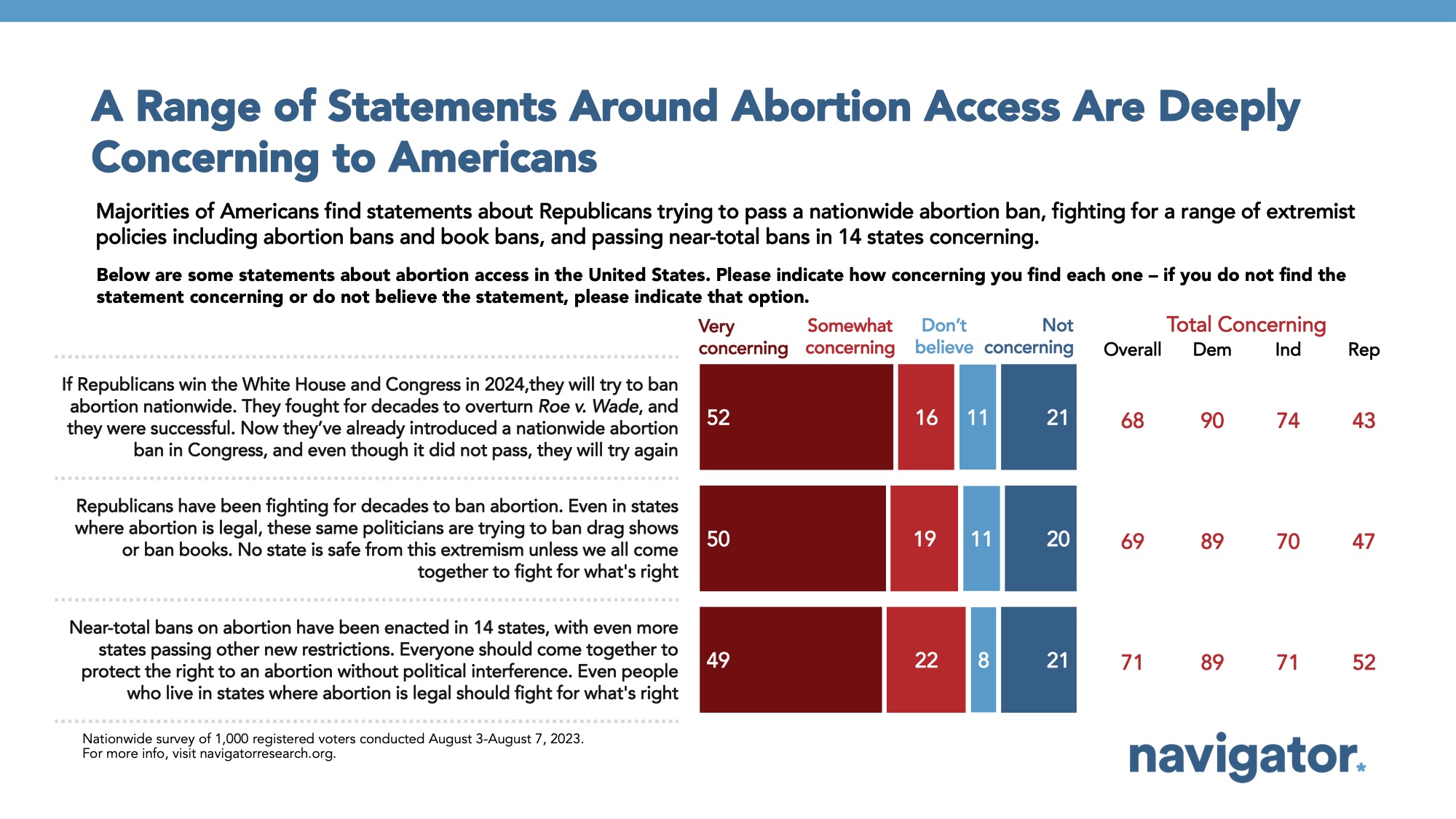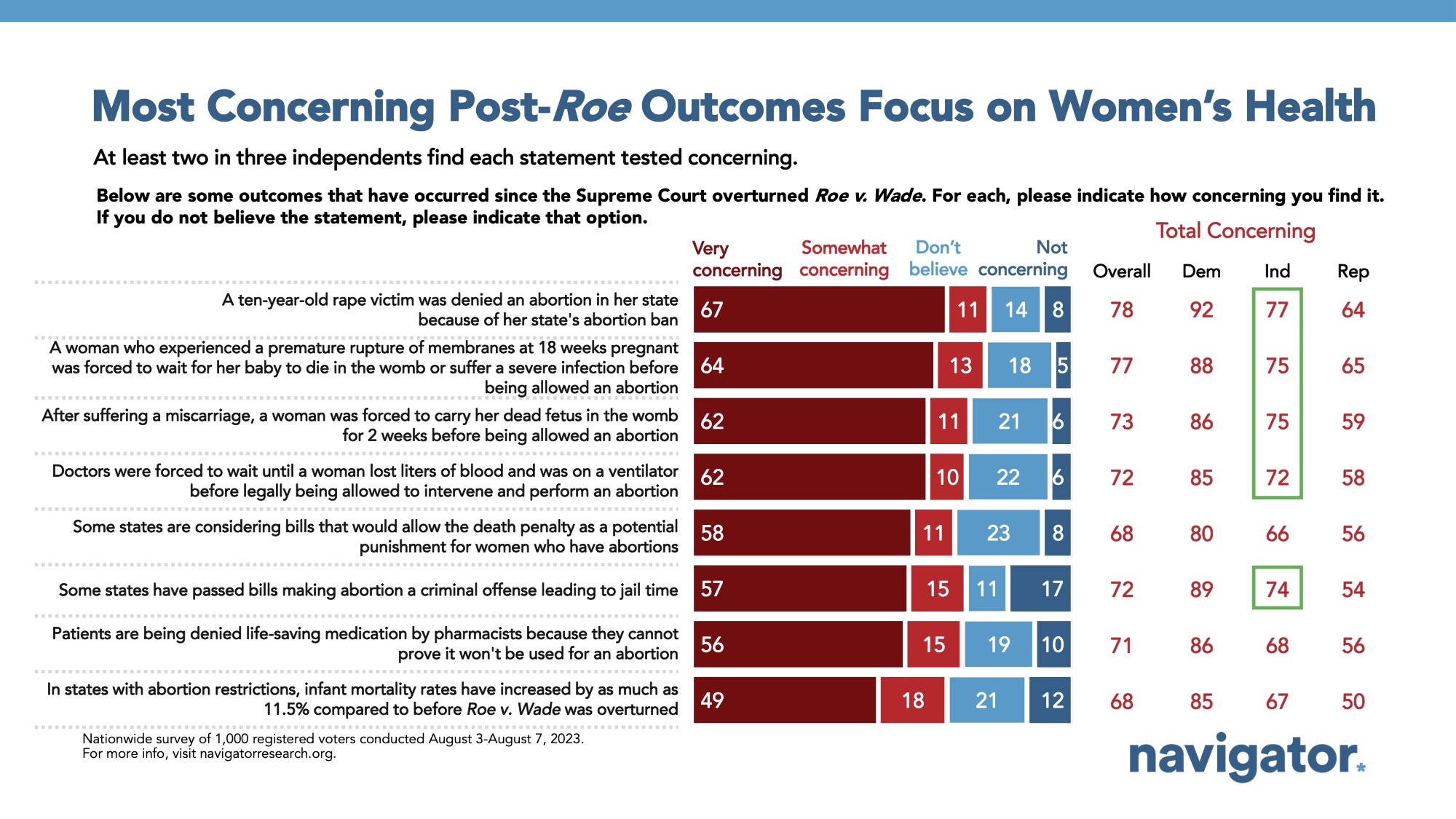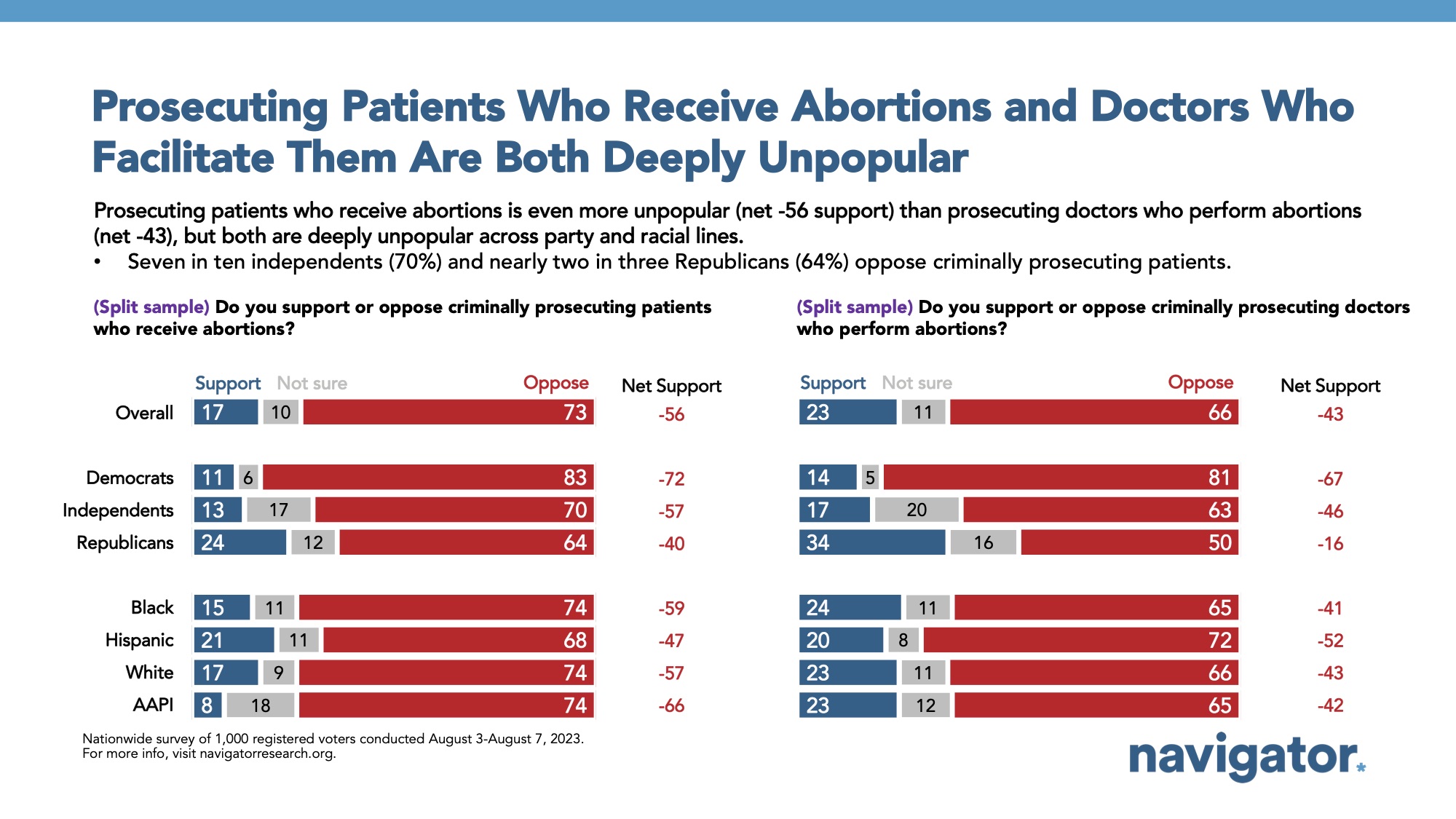Abortion Access Seen as in Peril Nationwide
This Navigator Research report contains polling data on Americans’ latest perceptions of abortion rights in the country, including the current level of risk Americans see to abortion rights at the state and federal levels, public opposition to criminalizing abortion care, and outcomes from state abortion bans Americans find most concerning since Roe was overturned.
Americans believe abortion access is in jeopardy both nationwide and in their individual states.
By a 54-point margin, seven in ten Americans believe that abortion access is at risk in the country (69 percent), with about half more intensely concerned that the right to an abortion is very much at risk (48 percent). A smaller majority of Americans are concerned about the risk to abortion access in their own states (51 percent at risk – 35 percent secure). However, this varies by state and region: among those who live in states that have enacted restrictions on abortion since the overturn of Roe v. Wade, 70 percent say that the right to an abortion is at risk in their state, compared to just 37 percent of those who live in states without newly enacted abortion restrictions who say the same. Seven in ten Americans living in the South are concerned about the right to abortion being in jeopardy (68 percent at risk – 18 percent secure), while fewer than two in five Americans living in the Northeast and the West are concerned about abortion access being at risk in their state (35 percent at risk in the Northeast, 39 percent at risk in the West).
- Amid efforts in some states to codify abortion rights in state constitutions, two in three Americans say they would vote to protect the right to abortion in their state’s constitution if their state held a vote on the issue (net +37; 64 percent vote to protect abortion rights – 27 percent would not vote to protect abortion rights). This includes over four in five Democrats (net +75; 84 percent vote to protect abortion rights – 9 percent would not vote to protect abortion rights) and nearly three in five independents (net +37; 58 percent vote to protect abortion rights – 21 percent would not vote to protect abortion rights). Republicans split nearly evenly on whether they would vote to protect abortion rights in their state constitutions (net -4; 44 percent vote to protect abortion rights – 48 percent would not vote to protect abortion rights), while voting to protect abortion in state constitutions is narrowly net positive among Republicans who do not regularly watch Fox News (net +3; 47 percent vote to protect abortion rights – 44 percent would not vote to protect abortion rights).
- 64 percent of Americans say that if Republicans take control of both the White House and Congress in 2024, they believe it is likely that Republicans would pass a nationwide abortion ban, including four in five Democrats (79 percent), two in three independents (64 percent), and nearly half of Republicans (48 percent).
- Reminder: a June Navigator survey found that two in three Americans oppose a nationwide abortion ban (net -41; 26 percent support – 67 percent oppose).
Americans are deeply concerned by various outcomes from abortion bans that states have put in place since the overturn of Roe v. Wade.
Seven in ten Americans find it concerning that “near-total bans on abortion have been enacted in 14 states, with even more states passing other new restrictions… everyone should come together to protect the right to an abortion without political interference… even people who live in states where abortion is legal should fight for what’s right” (71 percent). 69 percent also express concern with a statement that “Republicans have been fighting for decades to ban abortion… even in states where abortion is legal, these same politicians are trying to ban drag shows or ban books… no state is safe from this extremism unless we all come together to fight for what’s right.”
Vast majorities are deeply concerned by the consequences to women’s health that have emerged from recently-imposed restrictions on abortion at the state level.
More than three in four Americans find it concerning that, as a result of the overturn of Roe v. Wade last summer, that “a ten-year-old rape victim was denied an abortion in her state because of her state’s abortion ban” (78 percent, including 67 percent who find it “very concerning”). A similar share of Americans are concerned that “a woman who experienced a premature rupture of membranes at 18 weeks pregnant was forced to wait for her baby to die in the womb or suffer a severe infection before being allowed an abortion” (77 percent, including 64 percent who find it “very concerning”). 73 percent of Americans find it concerning that “after suffering a miscarriage, a woman was forced to carry her dead fetus in the womb for 2 weeks before being allowed an abortion” (including 62 percent who find it “very concerning”).
Criminalizing abortion care is deeply unpopular across party lines.
By a 56-point margin, Americans oppose criminally prosecuting patients who receive an abortion, including 58 percent of whom are strongly opposed (net +56; 73 percent oppose – 17 percent support). Additionally, two in three Americans oppose criminally prosecuting doctors who perform an abortion (net +43; 66 percent oppose – 23 percent support). Criminal prosecutions of receiving or performing abortions are deeply unpopular across partisanship, including strong opposition among Republicans (net -40 to prosecuting patients, net -16 opposition to prosecuting doctors).
- Seven in ten Americans find it concerning that “some states have passed bills making abortion a criminal offense leading to jail time” (72 percent, including 57 percent who find it “very concerning”) and that “patients are being denied life-saving medication by pharmacists because they cannot prove it won’t be used for an abortion (71 percent, including 56 percent who find it “very concerning”).
